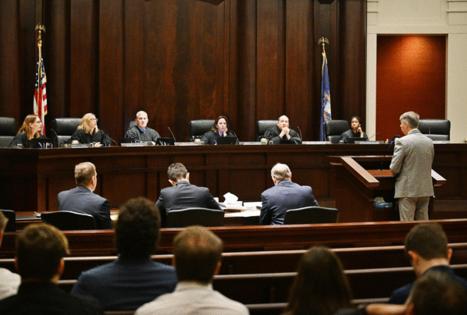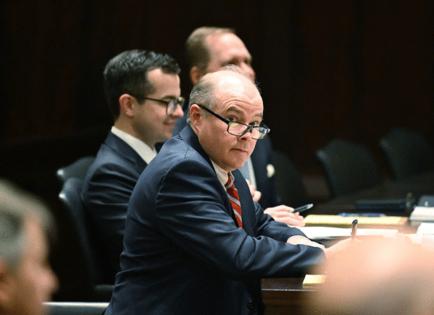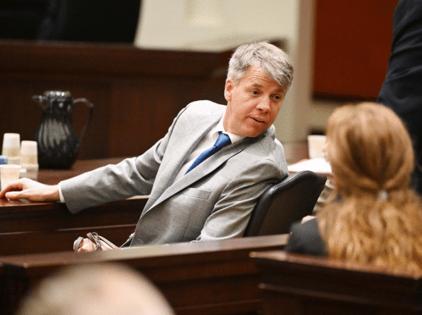Michigan Supreme Court weighs past precedent blocking AG's insulin pricing investigation
Published in News & Features
LANSING, Mich. — The Michigan Supreme Court will decide in the coming months whether to overturn nearly two decades of precedent to clear the way for an attorney general investigation into insulin pricing in Michigan.
The seven justices listened to about an hour of oral arguments Wednesday morning over whether Attorney General Dana Nessel's four-year investigation into pharmaceutical giant Eli Lilly & Co.'s insulin pricing should be allowed to continue, even if it requires the overturning case law that currently bars her from investigating the issue.
In order for Nessel to investigate the company, the state Supreme Court must overturn high court decisions from 1999 and 2007 that bar investigations of an entity already regulated by a separate state or federal agency. The decisions have effectively blocked the office from investigating under the Michigan Consumer Protection Act other regulated licensed industries such as nursing homes, construction companies and medical professionals.
"What the Legislature intended as a seldom-used side note was transformed into an expressway for those engaged in exploitation," Assistant Attorney General Darrin Fowler said, referencing a portion of the state consumer protection law that exempts from investigation “transaction[s] or conduct specifically authorized under laws administered by a regulatory board."
Eli Lilly is regulated by both the Federal Drug Administration and the Michigan Board of Pharmacy, neither of which have authority over pricing. But under the 1999 Smith decision and 2007 Liss order, the Supreme Court found the law exempted the entire transaction where another regulatory body is involved, including pricing.
John O'Quinn, an attorney for Eli Lilly, argued the Legislature has had ample opportunity in the years since those decisions to change the wording and allow Michigan, like other states, to initiate investigations even where another regulatory body is involved. But the Legislature has decided not to do so, he noted.
"Whatever you think of Smith when it was originally decided, this court, of course, has to grapple with the fact that the exact same language has been reenacted multiple times,” O'Quinn said.
Justices asked attorneys about whether the initiation of an investigation was enough to trigger Supreme Court action that would essentially overturn past precedent, while also wrestling with the broad interpretation the high court had taken of the exemption in the Michigan Consumer Protection Act.
Justice Elizabeth Welch noted the act includes about five pages of prohibited conduct or transactions, only to have them rendered moot by one exemption.
"It seems like it just swallows the whole act," Welch said. "Why would the Legislature take all the time to outline all this behavior that is not OK and then exempt it all?”
The Supreme Court previously denied the attorney general's motion to bypass the lower courts, but ordered the Court of Appeals to consider the case on an expedited basis. Both the Ingham County Circuit Court and Court of Appeals have ruled that they are bound by the 1999 and 2007 cases and cannot consider Nessel's request without action by the Michigan Supreme Court overturning those rulings.
_____
©2025 The Detroit News. Visit detroitnews.com. Distributed by Tribune Content Agency, LLC.












Comments